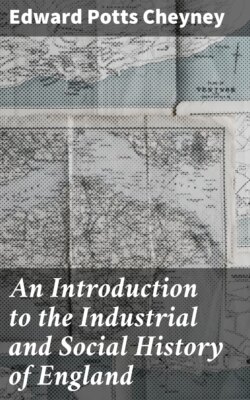Читать книгу An Introduction to the Industrial and Social History of England - Edward Potts Cheyney - Страница 8
На сайте Литреса книга снята с продажи.
ОглавлениеThe reign of Edward II, like his own character, was insignificant compared with that of his father. He was deposed in 1327, and his son, Edward III, came to the throne as a boy of fourteen years. The first years of his reign were also relatively unimportant. By the time he reached his majority, however, other events were imminent which for the next century or more gave a new direction to the principal interests and energies of England. A description of these events will be given in a later chapter.
For the greater part of the long period which has now been sketched in outline it is almost solely the political and ecclesiastical events and certain personal experiences which have left their records in history. We can obtain but vague outlines of the actual life of the people. An important Anglo-Saxon document describes the organization of a great landed estate, and from Domesday Book and other early Norman records may be drawn certain inferences as to the degree of freedom of the masses of the people and certain facts as to agriculture and trade. From the increasing body of public records in the twelfth century can be gathered detached pieces of information as to actual social and economic conditions, but the knowledge that can be obtained is even yet slight and uncertain. With the thirteenth century, however, all this is changed. During the latter part of the period just described, that is to say the reigns of Henry III and the three Edwards, we have almost as full knowledge of economic as of political conditions, of the life of the mass of the people as of that of courtiers and ecclesiastics. From a time for which 1250 may be taken as an approximate date, written documents began to be so numerous, so varied, and so full of information as to the affairs of private life, that it becomes possible to obtain a comparatively full and clear knowledge of the methods of agriculture, handicraft, and commerce, of the classes of society, the prevailing customs and ideas, and in general of the mode of life and social organization of the mass of the people, this being the principal subject of economic and social history. The next three chapters will therefore be devoted respectively to a description of rural life, of town life, and of trading relations, as they were during the century from 1250 to 1350, while the succeeding chapters will trace the main lines of economic and social change during succeeding periods down to the present time.
